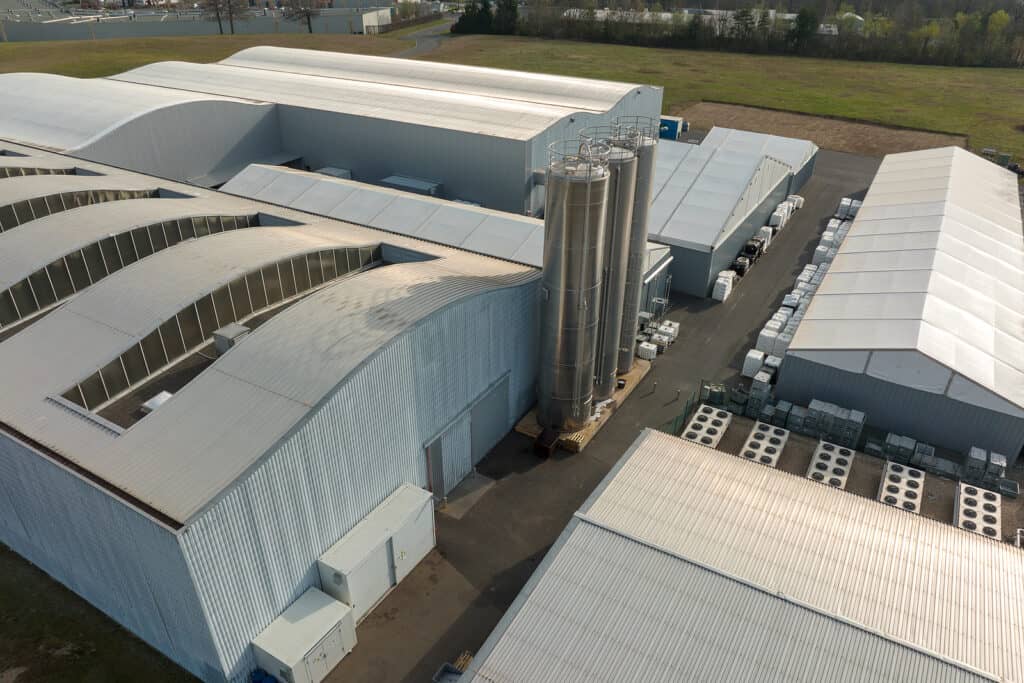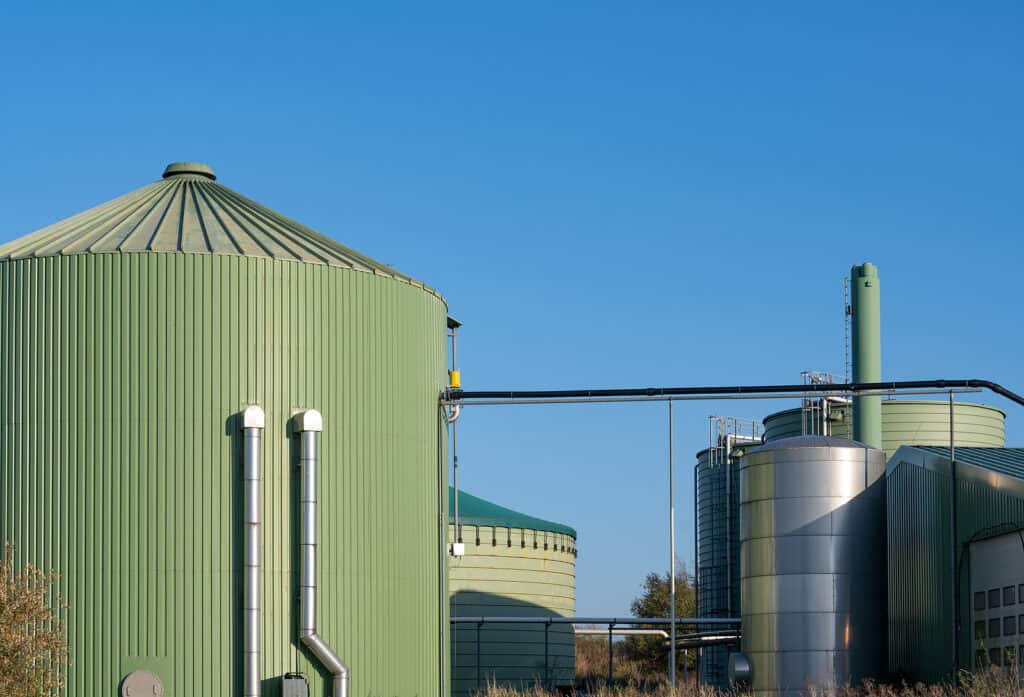Top Biomass Energy Companies Making a Difference: Leading the Charge for a Sustainable Future
In the quest for a more sustainable future, alternative energy sources have taken center stage. Among these renewable energy resources, biomass energy has emerged as a significant player. Biomass is organic material derived from living, or recently living organisms, often in the form of wood, waste, and alcohol fuels.
As an integral part of the global energy mix, biomass energy companies are leading the way, developing innovative solutions to tackle our energy needs while minimizing the environmental impact. In this article, we'll delve into the top biomass energy source companies that are making a significant difference in this sector.
How Does Biomass Energy Work?
Biomass energy is a renewable energy source that derives from organic materials such as plants, agricultural residues, wood, and other organic waste. It works by harnessing the energy stored in these organic materials through various processes.
The process of generating biomass energy typically involves the following steps:
- Collection and Preparation: Biomass materials are collected from different sources, such as crop residues, forestry waste, or dedicated energy crops. These materials are then processed to remove impurities like rocks, dirt, or non-combustible elements.
- Conversion: Biomass can be converted into energy through different methods, including:a. Combustion: The most common method is burning biomass directly, either in specialized biomass power plants or in co-firing facilities where biomass is mixed with coal. The heat generated from combustion is used to produce steam, which drives a turbine connected to a generator, producing electricity.b. Anaerobic Digestion: Biomass can be converted into biogas through anaerobic digestion, a natural process where microorganisms break down organic matter in the absence of oxygen. The biogas produced (mainly composed of methane) can be used directly as fuel for heating or electricity generation.c. Pyrolysis: In pyrolysis, biomass is heated in the absence of oxygen, leading to the release of gases, liquid bio-oil, and solid char. The bio-oil can be further processed to produce fuels or used for heat and power generation.d. Gasification: Biomass can also be converted into a synthetic gas known as syngas through gasification. Syngas, composed of carbon monoxide, hydrogen, and other gases, can be used as fuel for power generation or converted into biofuels.
- Energy Generation: The energy generated from biomass can be used for various purposes:a. Heat and Electricity: Biomass energy can be utilized to produce heat for industrial processes, space heating, or district heating systems. Additionally, electricity can be generated through steam turbines connected to generators.b. Biofuels: Biomass can be converted into liquid biofuels, such as ethanol and biodiesel, which can be used as substitutes for gasoline and diesel fuels in vehicles.
- Environmental Considerations: Biomass energy is considered renewable because the organic materials used to produce it can be replenished over time. However, it is important to ensure sustainable biomass practices, such as using waste materials or cultivating energy crops on degraded land to avoid competing with food production. Proper management of emissions, such as controlling particulate matter and minimizing greenhouse gas emissions, is crucial to mitigate environmental impacts.
Key Features for Biomass Energy Companies Making a Differences
As we've explored these leading biomass energy companies, several key features have emerged that contribute to their effectiveness and success. These features are essential components of their strategies, and they set these companies apart as leaders is biomass energy renewable industry.
1. Commitment to Sustainability
Each of these companies demonstrates a strong commitment to sustainability, acknowledging the essential role of renewable energy in combating climate change. They seek to create energy solutions that not only meet our current needs but also preserve the environment for future generations.
2. Innovation and Technology
These companies are pioneers in the field, using the latest technologies and innovations to maximize the efficiency of biomass energy production. From the development of high-efficiency power plants to the invention of new techniques for creating bioenergy, these companies lead the way in technological advancement.
3. Utilization of Waste
Many of these companies utilize waste materials in their production processes, contributing to a circular economy. By using organic waste, agricultural byproducts, or forestry residues, they create value from resources that would otherwise be discarded.
4. Diverse Feedstock
Biomass energy can be derived from a variety of organic materials, and these companies make use of a broad range of feedstock. This diversity not only enhances the sustainability of their operations but also allows them to adapt to different geographic locations and resource availability.
5. Local Engagement
Several of the companies focus on local engagement, working closely with local communities, governments, and stakeholders. This can involve supporting local economies, respecting local environmental concerns, or partnering with local businesses and institutions.
6. Carbon Reduction
One of the key advantages of biomass energy is its potential to reduce carbon emissions. These companies strive to minimize their carbon footprint, and some are even working towards carbon-negative operations.
7. Global Reach
While some of these companies focus on a specific region, many have a global reach, operating in multiple countries around the world. This global perspective allows them to contribute to renewable energy development on a large scale.
8. Comprehensive Solutions
These companies often offer comprehensive energy solutions that go beyond simply producing biomass. This can include services related to energy storage, supply, distribution, and even waste management.
These features provide a roadmap for other companies looking to make a difference in the biomass energy sector. By prioritizing sustainability, leveraging technology, engaging with local communities, and offering comprehensive solutions, these companies are leading the charge towards a more sustainable future.

Some of the Biomass Energy Companies Leading the Charge
Across the globe, pioneering companies are leveraging biomass as a crucial resource for renewable energy. This collective effort is transforming not just the energy sector but also agriculture, waste management, and local economies.
Enviva and Pacific BioEnergy Corporation are champions in turning wood waste into energy-dense pellets, while Akuo Energy and ENGIE are focusing on creating comprehensive energy solutions, from production to supply. Drax Group and Ørsted are ambitious about reducing carbon emissions, with Drax aiming for a carbon-negative future through innovative Bioenergy with Carbon Capture and Storage (BECCS) technology.
In the heart of Asia, Mitsui & Co is expanding its renewable portfolio by investing in biomass power projects. Abellon CleanEnergy is not only a leader in bioenergy but also a promoter of agrarian economies in India, using agricultural waste as a key resource. Bioenergy DevCo and Nexterra Systems Corp take organic and waste biomass and turn it into valuable resources, embodying the principles of a circular economy.
Bioenergie La Tuque is revamping the forestry industry by transforming residual forest biomass into renewable biofuel, while Valmet Corporation provides comprehensive solutions from fuel handling to emission control. MGT Power is demonstrating the potential of large-scale biomass energy with their Teesport Biomass project set to power 600,000 homes. Acciona was among the first to invest in biomass energy in Spain, employing a variety of biomass materials.
In essence, these biomass energy companies are not just providing renewable energy solutions but are also making a profound impact on carbon reduction, waste management, local economies, and sustainable development. These forward-thinking companies are truly leading the charge for a greener, sustainable future, the Companies:
Enviva Partners LP
Enviva is the world's largest producer of industrial wood pellets, a leading form of biomass energy. The company's mission is to displace coal, reduce carbon emissions, and provide renewable energy solutions. Based in Maryland, USA, Enviva operates numerous plants across the Southeast United States, turning low-value wood resources into a renewable energy source.
Innovation and Sustainability
Enviva's operations epitomize innovation and sustainability. They maintain a comprehensive tracking system to ensure their resources are responsibly sourced, while their pellet production technique reduces greenhouse gas emissions compared to fossil fuels. Their biomass product is helping power plants across Europe and Asia transition away from coal.
Drax Group
Drax Group, based in the UK, is pioneering the transformation from coal to biomass. Their flagship power station, Drax Power Station, has been converted from the largest coal-fired power station in Western Europe to the largest biomass-fueled power station.
A Carbon-Negative Vision
Drax Group is not only looking at a sustainable future; they're aiming for a carbon-negative one. They are currently researching and developing bioenergy with carbon capture and storage (BECCS) technology. With BECCS, Drax Group aims to remove more carbon dioxide from the atmosphere than it produces.
E.ON
E.ON, a leading international energy company based in Germany, is expanding its renewable energy portfolio, which includes significant investments in biomass. The company operates biomass plants in the UK, Sweden, and Italy, using different sources of biomass, such as wood pellets, straw, and olive residues.
Leading in Decentralized Energy Production
E.ON is setting the pace for decentralized energy production. The company believes in creating energy near the point of consumption, reducing the need for extensive distribution networks, and improving efficiency. Their biomass plants are strategically located to facilitate this.
Pacific BioEnergy Corporation
Canada's Pacific BioEnergy Corporation (PacBio) has been at the forefront of the biomass industry for more than 25 years. They produce wood pellets from waste products like sawmill residues and beetle-killed timber, reducing waste while creating a renewable energy source.
Innovating in Biomass Supply Chain
PacBio is pioneering developments in the biomass supply chain. Through partnerships with First Nations, forest licensees, and local communities, PacBio ensures a sustainable and reliable supply of raw materials.
Valmet Corporation
Finland's Valmet Corporation provides technologies, automation systems, and services for the pulp, paper, and energy industries, including a broad range of solutions for biomass energy production.
A Comprehensive Approach
Valmet offers a comprehensive approach to biomass energy, providing everything from fuel handling to combustion technology and emission control. Their technologies are designed to maximize efficiency and sustainability, making them a leading player in the biomass energy sector.
Abellon CleanEnergy Ltd
Abellon CleanEnergy, based in India, is a leading global player in the bioenergy sector, especially in producing biomass pellets from agricultural and forestry waste.
Promoting Agrarian Economies
Abellon is well-known for its efforts in promoting agrarian economies by utilizing agricultural waste products as raw materials. This not only offers an effective solution for waste management but also creates an additional income source for farmers.
Akuo Energy
Akuo Energy, a French company, is involved in a variety of renewable energy sectors, including biomass. They specialize in creating comprehensive solutions that include production, storage, and supply of renewable energy.
Local Engagement
Akuo Energy focuses on local engagement, developing projects that respect the local environment and economy. Their innovative approaches ensure sustainable, long-term benefits for the regions they operate in.
Bioenergy DevCo
Bioenergy DevCo is a US-based company specializing in the anaerobic digestion of organic waste to produce renewable natural gas and organic soil products.
Embracing Circular Economy
Bioenergy DevCo's work embodies the principles of a circular economy. By turning organic waste into energy and soil products, they're turning what's often viewed as a problem into a solution.
ENGIE
ENGIE, a French multinational electric utility company, operates several biomass power plants across the globe. The company focuses on decentralized, digitized, and decarbonized energy systems.
High-Efficiency Power Plants
ENGIE's biomass power plants are designed to have high efficiency and low emissions. They make use of a variety of feedstock, including forestry and agricultural residues, as well as industrial biomass waste.

Bioenergie La Tuque (BELT)
BELT is a Canadian company working on a project to develop biofuel from residual forest biomass. Their mission is to produce biofuel as a renewable alternative to fossil fuels in transportation.
Transforming the Forestry Industry
BELT is changing the way we view the forestry industry. By using residual forest biomass that would otherwise go to waste, they're creating a sustainable alternative for fuel production.
Mitsui & Co
Mitsui & Co, a Japanese multinational, is a significant player in the biomass energy sector. They've invested in biomass power projects in Japan and are expanding globally.
Expanding Renewable Portfolio
Mitsui is known for expanding its renewable energy portfolio, with investments in multiple renewable energy projects. Their approach to biomass energy aligns with their commitment to create a sustainable society.
Nexterra Systems Corp.
Nexterra Systems, based in Canada, is a leader in biomass gasification. They convert waste biomass into clean-burning syngas which can be used for heat and power generation.
Waste to Energy Solutions
Nexterra is focused on delivering cost-effective, reliable waste-to-energy solutions. Their approach not only reduces waste but also delivers significant environmental benefits by producing renewable energy.
MGT Power
MGT Power, a UK-based company, is developing one of the largest biomass plants in the world. Their Teesport Biomass project is a showcase for large-scale, low carbon power generation.
Biomass Power on a Large Scale
MGT Power is demonstrating the viability of biomass energy on a large scale. Their plant will produce enough power for 600,000 homes while reducing CO2 emissions by 1.2 million tons annually.
Acciona
Acciona, a Spanish company, operates a range of renewable energy plants, including biomass. They're known for their commitment to sustainable development and innovation.
Pioneering Biomass Energy in Spain
Acciona was one of the first companies in Spain to invest in biomass energy. They utilize a range of biomass materials, including herbaceous crops, cereal straw, and olive tree pruning.
Ørsted
Ørsted, a Danish multinational power company, is investing in biomass as part of its plan to be carbon-neutral by 2025. They've converted several coal-fired power stations to sustainable biomass.
Transitioning to Green Energy
Ørsted is committed to a green energy transition. Their approach to biomass energy is part of their strategy to create a world that runs entirely on green energy.
Biomass Energy Pros and Cons
Biomass energy, like any other energy source, has its own set of advantages and disadvantages. Here are some of the pros and cons associated with biomass energy:
Biomass Energy Pons:
- Renewable and Sustainable: Biomass is derived from organic materials that can be continually replenished through proper management practices. This makes biomass energy a renewable and sustainable source of energy, reducing dependence on finite fossil fuel reserves.
- Carbon Neutrality: Biomass energy is considered carbon-neutral because the carbon dioxide released during combustion is offset by the carbon dioxide absorbed by plants during their growth. This helps to minimize net greenhouse gas emissions, contributing to mitigating climate change.
- Waste Management: Biomass energy can utilize agricultural residues, forestry waste, and other organic waste materials that would otherwise be disposed of or left to decompose. By converting these waste materials into energy, biomass systems help to reduce landfill waste and promote efficient waste management.
- Local Energy Generation: Biomass energy can be produced locally, reducing the need for long-distance transportation of fuels. This decentralization of energy generation can enhance energy security and stimulate local economies by creating jobs and supporting rural communities.
- Versatile Applications: Biomass energy can be used for various purposes, including heat and electricity generation, as well as the production of biofuels. It offers a versatile and flexible energy source that can be integrated into existing infrastructure and systems.
Biomass Energy Cons:
- Land and Resource Competition: Biomass energy production requires land and resources, such as water and nutrients, which may compete with other land uses, including food production. If not properly managed, biomass cultivation can lead to deforestation, habitat destruction, and ecosystem degradation.
- Environmental Impacts: Biomass combustion releases air pollutants, such as particulate matter, nitrogen oxides, and sulfur dioxide, which can contribute to air pollution and have adverse health effects. Additionally, the intensive cultivation of energy crops may require fertilizers and pesticides, potentially leading to water pollution and soil degradation.
- Biomass Supply and Storage: The consistent supply of biomass materials can be challenging, as it relies on factors like crop yields, seasonal variations, and the availability of waste feedstocks. Additionally, biomass storage and handling can be costly and require appropriate infrastructure.
Conclusion
The global drive towards a sustainable future is gaining momentum, and these biomass energy companies are at the forefront of this transition. They're harnessing the potential of biomass, converting what was once considered waste into valuable, renewable energy. Through innovation, local engagement, and a commitment to sustainability, these companies are not only creating a renewable energy source but are also impacting carbon reduction, waste management, local economies, and sustainable development.
As they pioneer new technologies and strategies, these leading biomass energy companies are paving the way for a world where our energy needs are met without compromising the health of our planet. They're setting the pace and providing a roadmap for other companies to follow. Their work is a testament to human ingenuity and our collective capacity to create a sustainable future. Their commitment and dedication remind us that a greener, more sustainable future is not only desirable but entirely achievable.

